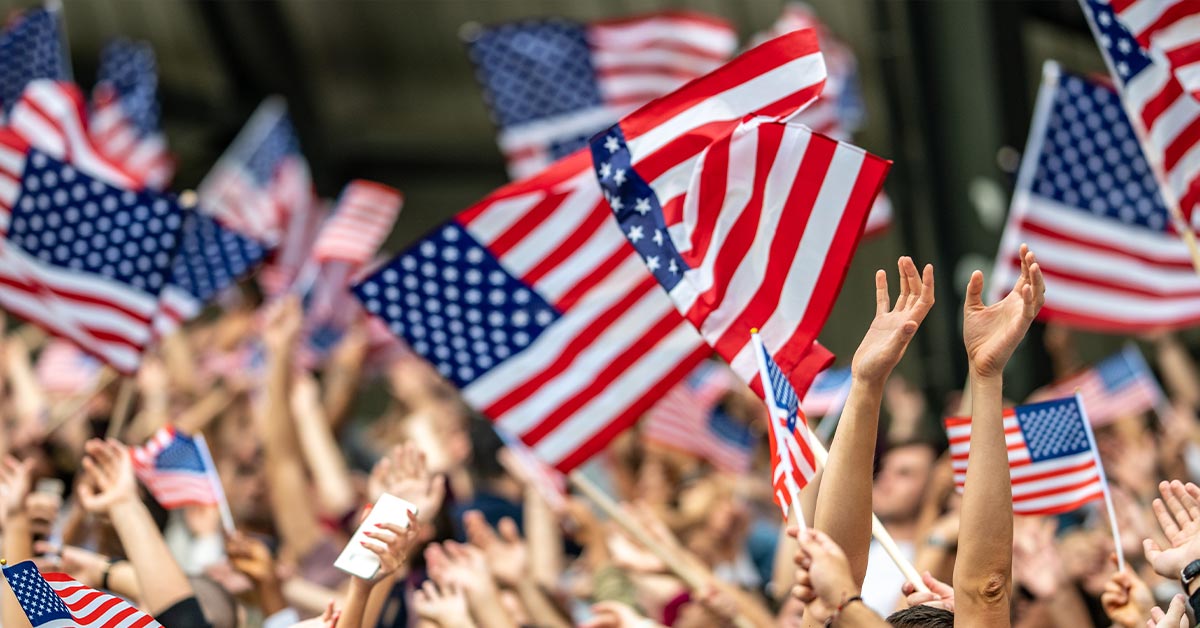A recent Gallup poll reports that American pride has fallen to a new low, with just 18% of U.S. adults saying they are “extremely proud” to be American. The headlines write themselves: decline, division, disillusionment. But before we accept this narrative as gospel, we need to ask a deeper question: Why is pride declining—and who benefits from its erosion?
This isn’t happening in a vacuum. It’s the consequence of decades of cultural conditioning, particularly from institutions that once existed to strengthen our national fabric: our universities. The very places meant to prepare the next generation for civic leadership and national service have, in too many cases, become hotbeds of anti-Americanism. Instead of cultivating gratitude and civic virtue, they foster grievance and cynicism. They no longer teach American exceptionalism as a foundational truth but dismiss it as a myth crafted by colonizers and capitalists.
Since 2001, average college tuition at four-year public universities has more than tripled—from about $3,600 to over $10,000 annually. That increase far outpaces inflation and wages. For private institutions, the jump is even more staggering. We’ve burdened students with crushing debt and then sent them into the world armed not with marketable skills or civic understanding, but with ideological disdain for the very system that gave them the freedom to learn in the first place.
The irony is thick: the cost of education has skyrocketed, but the value of a degree has plummeted—not just for the individual graduate, but for society at large. Instead of investing in engineers, teachers, doctors, and innovators who lift our nation forward, we’ve subsidized the production of cynics trained to undermine the institutions that made their education possible.
This didn’t happen by accident. It happened because we allowed our elite institutions to redefine patriotism as naïveté and global citizenship as moral superiority. We’ve been told we are occupiers, racists, xenophobes. We’ve allowed the loudest voices to dominate the conversation, repeating that America is a country founded in sin and sustained by oppression.
But here’s the truth: the so-called “American Century” lifted more people out of poverty, oppression, and war than any other period in human history. No country in the world has spread more prosperity, protected more freedoms, or sacrificed more lives in the service of liberty for others than the United States of America.
The Marshall Plan rebuilt Europe. The Berlin Airlift defied tyranny. The Civil Rights Movement—imperfect but persistent—reformed the very institutions that enshrined inequality. American innovation cured diseases, sent humans to the moon, built the Internet, and revolutionized global agriculture. From jazz to microchips, we’ve given the world more than it ever gave us in return.
So why the shame?
Because the loudest cultural institutions have spent decades telling a generation not only to forget, but to resent. Now, after years of indoctrination, higher education has helped produce a self-loathing electorate. Pundits describe this as an “education gap” and softly imply it’s an intelligence gap. But maybe a more honest term is a reality gap. Many of our fellow citizens simply no longer recognize the country that enabled their success—or the world that suffers in its absence.
This is why we must remember. When America is not strong, virtuous, and unapologetic in its defense of freedom, the world does not become more peaceful or more just. It becomes more violent, more repressive, and more desperate. From Ukraine to Taiwan, from Gaza to Sudan, the need for American leadership has never been more urgent.
And let’s dispel another lie while we’re at it: that America is hopelessly divided by race, faith, and origin. The truth? The United States is the most successful multi-cultural nation-state in world history. No other country has welcomed as many immigrants, embraced as many cultures, or provided more upward mobility for people of every background. Our melting pot isn’t perfect, but it works—and it works better than any alternative history can offer.
Pride in that doesn’t mean pride without humility. It means acknowledging that our country, though flawed, has always possessed the capacity—and the courage—to improve. We are not defined by our darkest chapters, but by our refusal to let them be the final word.
Pride isn’t about blind nationalism. It’s about gratitude. It’s about understanding that the freedom to criticize, protest, and change is itself uniquely American. And it’s about knowing that when that gratitude dies, so does the very spirit that makes change possible.
So yes, pride is down. But it can—and must—rise again. Not because of slogans or political leaders, but because of truth. Because of history. Because of reality.
We are proud not because we are perfect, but because we are free. Because we try. Because when we get it wrong, we try again. And because no other country on Earth has ever done more, given more, or sacrificed more in the name of liberty—for its own people, and for the world.
That is why we are proud. And that is why we must teach our children to be proud again.

